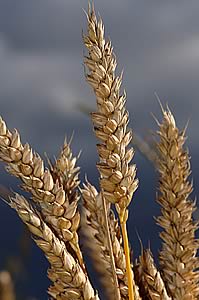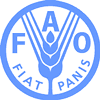2009-04-23
High food prices persist in developing countries despite an improved global cereal supply situation and a sharp decline in international food prices, FAO warned today in its latest Crop Prospects and Food Situation report.
This is creating further hardship for millions of poor people already suffering from hunger and undernourishment.
This year's world cereal production is forecast to decline by 3 percent from the 2008 record, but it would still be the second largest crop ever, according to FAO's first 2009 forecast. Most of the decrease is expected to be in wheat, mainly due to a significant reduction in plantings in developed countries in response to lower international prices. In developing countries, cereal output could remain close to last year's good level.
Food emergencies persist in 32 countries, despite good 2008 cereal crops in many of the countries normally most at risk of food insecurity.
Out of reach
Cereal prices in developing countries remain generally very high - in some cases at record levels, FAO said. Worst affected are the urban poor and food-deficit farmers who are dependent on the market to access food. Moreover, the global economic recession is drying up remittances from family members working abroad that often sustain the food consumption levels of vulnerable households.
An analysis of domestic food prices for 58 developing countries shows that in around 80 percent of the cases food prices are higher than 12 months ago, and in around 40 percent higher than three months ago. In 17 percent of the cases, the latest price quotations are the highest on record.
The situation is most dramatic in sub-Saharan Africa. Domestic prices of rice are much higher than 12 months earlier in all countries analyzed, while prices of maize, millet and sorghum are higher in 89 percent of the countries compared to a year earlier.
Food prices remain at high levels in other regions as well, particularly in Asia for rice and in Central and South America for maize and wheat.
Slower imports The cereal import bill for low-income food-deficit countries (LIFDCs) is expected to decline in 2008/09 to $28 billion, down 27 percent from the previous season's all-time high, with lower international prices and freight rates bringing some relief, the report said.
But the slow pace of both commercial cereal imports and food aid is one of the factors keeping food prices high in poor countries, FAO says. By late March, only 45 percent of the LIFDCs' cereal import requirement for the marketing years ending in 2009 had been met.
Hunger hotspots
Food insecurity prevails in parts of Asia, especially in parts of Afghanistan, Sri Lanka and Myanmar. In the Democratic People's Republic of Korea, amid chronic food insecurity, food rations have reportedly been halved following reduced supplies.
In Eastern Africa more than 17 million people face serious food insecurity due to poor harvests, conflict or a combination of these factors. In Somalia, an estimated 3.2 million people currently require food assistance. In Sudan, the continued conflict and the recent expulsion of some humanitarian agencies in Darfur have raised serious concern for millions of vulnerable people faced already with dire situations.
In Southern Africa high domestic prices, slow pace of imports and high demand during these peak hunger months are affecting the food security of around 8.7 million people, including over 5 million in Zimbabwe, where the ongoing outbreak of cholera poses a serious threat to the health and nutrition of vulnerable groups.
 Cheap Food Era Over: Leadership Must be Based on Science Cheap Food Era Over: Leadership Must be Based on Science
 All Together Now at English Farming and Food Conference All Together Now at English Farming and Food Conference
 New FAO Food Price Database Launched New FAO Food Price Database Launched
|



